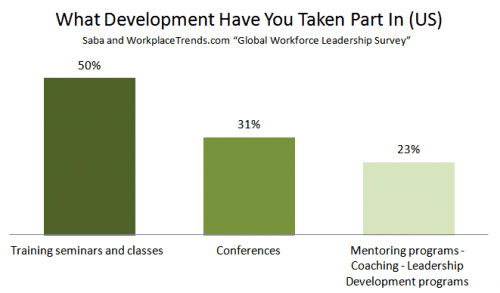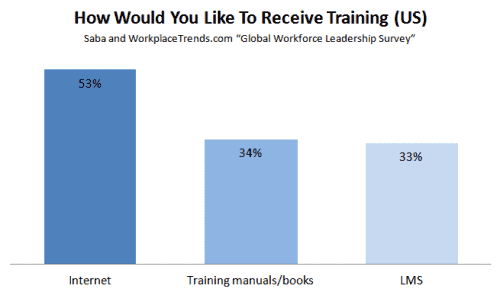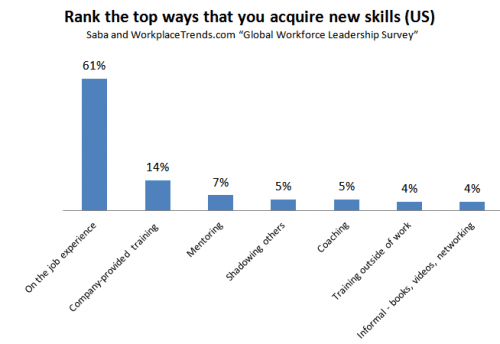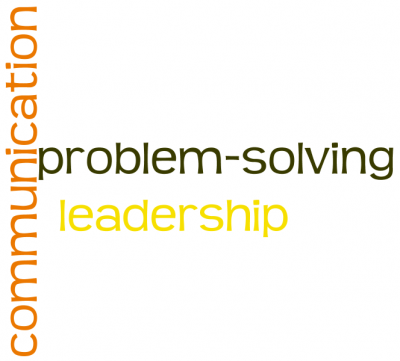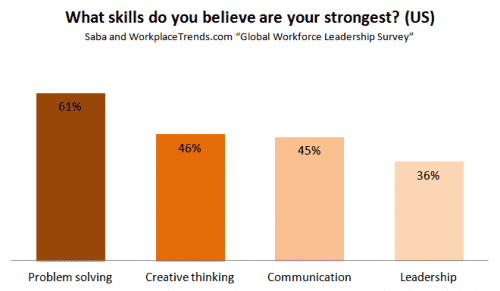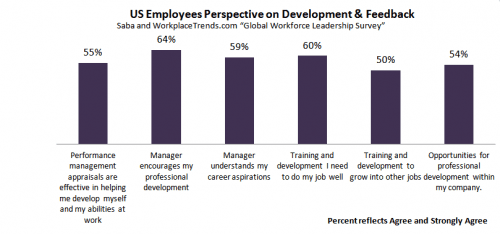Humans are funny creatures. We ask for freedom, yet we crave stability.
Think about when you were a teenager. Your parents gave you the keys to the car and what did you do? You took it out and came back with the gas tank near empty or worse, you drove at excessive speeds, got a ticket and asked your parents to pay your fine. There are consequences to freedom.
I think these are some of the same feelings employees have in today’s workplace. Employees want freedom, but still expect the employer to take care of them.
Dan Schawbel sent me The Global Workforce Leadership Survey and I was curious to see the findings. I dug through the data trying to make sense of the gaps between what employees said they wanted (or got) and what companies said they provided. I’m not sure I can reach clear conclusions, but the gaps raise important issues for us all to think and talk about.
The Global Workforce Leadership Survey identified gaps between priorities and expectations of global HR leaders and their employees. It was conducted this year and includes 1000 human resource professionals and 1000 employees from eight countries. The survey was sponsored by Saba, a global leader in cloud-based intelligent talent management solutions, along with WorkplaceTrends.com, a research and advisory membership service for forward-thinking HR professionals.
Some Key Findings
TRAINING & DEVELOPMENT
- 74% of US employees said they felt it was necessary for the company to invest in their personal career development.
- 70% of US employees said their company’s training and development program is effective.
- 39% of US employees said they would rather train themselves versus 61% that want company-provided training
- 61% of US Human Resources professionals ranked “on the job experience” as the number one method of learning new skills.
SKILLS ASSESSED & NEEDED
- The top skills needed, according to Human Resources and employees are: communication, leadership and problem solving.
- The hardest skills to find, according to Human Resources are: leadership, people management and communication.
- Employees reported their strongest skills are: problem solving, creative thinking, communication, leadership.
FREQUENCY OF FEEDBACK
- 47% of US employees want quarterly or weekly feedback from their manager.
- 56% of US employees have annual performance reviews and 21% have bi-annual performance reviews
What Types of Training & Development Do Companies Provide (Globally)
There is a full portfolio of options available to employees according to HR professionals around the world who said these were the types of professional development available through their companies. Is this lip service or are employees really getting a full menu of options? (See below)
- Mentoring programs
- Training seminars and classes
- Guest speakers
- Coaching
- Leadership development programs
- Conferences
- Committees
- Paid graduate school
- Rotational programs
What Development Have You Taken Part In (US)
Employees reported these were development opportunities they participated in.
How Do Companies Deliver Training & Development (Globally)
A broad spectrum of options are available for delivering training today. But are employees aware of all the options? Are they comfortable using the newer tools?
- LMS
- Internet
- Hiring outside experts
- Working with an outside college
- Training manuals/books
- Mobile
- Social media
- MOOCs
How Would You Like To Receive Training (US)
Are employees mis-understanding the question or do they lack an understanding of how they can learn new skills? Why, in 2015, would so many employees say they would like to receive training in the form of manuals or books? Where is “on the job” experience? (See below) If we learn new skills by on the job experience, then why isn’t that considered a form of training?
Top Ways Employees Acquire New Skills (US)
61% chose “On the job experience” as the most important way to develop new skills.
Could this mean that coaching, shadowing, mentoring and other real-time experiences aren’t seen as valuable because there isn’t a clear take-away, like a certificate or book? Or is it that employees don’t consider on the job experience to be training?
Which skills do you believe your company needs most in employees (US)
It looks like HR and employees agree upon the skills the company needs most.
HR says communication ( 63%), leadership (54%), and problem solving (53%)
Employees say communication (57%), problem solving (56%), leadership (41%)
What skills do you believe are your strongest? (US)
The puzzling thing here is that employees said these are their strongest skills. Why would HR say these are the hardest skills to find? (see below)
Hardest Skills to Find (US)
According to HR professionals in the US, these are the hardest skills to find. Communication and leadership were ranked by employees as their strongest skills. Also interesting to note the appearance of “people management” skills here as it hasn’t been referenced as an important skill to develop or a top skill of US employees.
- Leadership (31%)
- People management (27%)
- Communication (26%)
Performance Reviews vs. Feedback
Is there really a difference? Some will say yes and others will say no. What the study tells us is that employees want more frequent feedback.
Is Everyone Getting the Development and Feedback Wanted?
It seems that not everyone is happy with what they are getting, despite what companies say they provide. The graph below represents US employees’ agree or strongly agree responses. Averaging around 50% indicates companies and managers have room for improvement.
The Bottom Line
It can be difficult to meet everyone’s expectations. However, as we move forward, employees and HR should work more closely to align professional development to meet needs and produce a stronger workforce- one which is ready, willing and able to advance into new roles.

Hannah Morgan speaks and writes about job search and career strategies. She founded CareerSherpa.net to educate professionals on how to maneuver through today’s job search process. Hannah was nominated as a LinkedIn Top Voice in Job Search and Careers and is a regular contributor to US News & World Report. She has been quoted by media outlets, including Forbes, USA Today, Money Magazine, Huffington Post, as well as many other publications. She is also author of The Infographic Resume and co-author of Social Networking for Business Success.
